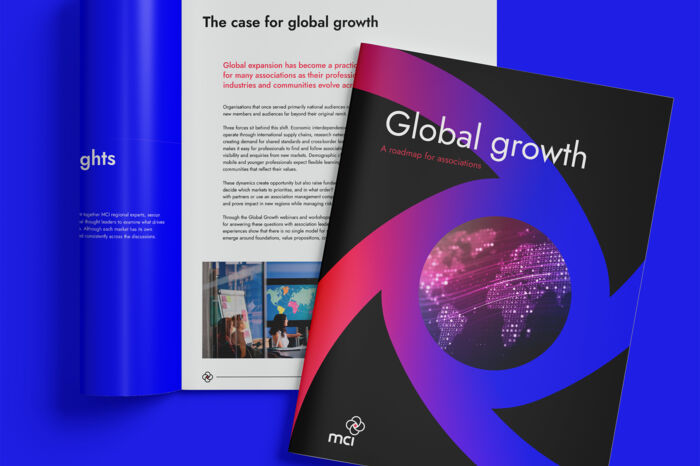
mci group’s approach: Competence-based crisis management
At MCI, we adopt a competence-based approach to crisis management. Given the variety of our operations – spanning different countries, industries and event types – we require a flexible model that equips our teams to respond to any crisis, regardless of its nature. (This contrasts with a scenario-based approach, which – while useful in predictable environments – relies on predefined responses to known risks.)
We break a crisis into six key phases, each with specific actions to ensure that we handle the situation effectively:
- Latency phase: Detecting weak signals that indicate the potential for a crisis.
- Alert phase: Acknowledging the issue and preparing for immediate action.
- Impact phase: The crisis unfolds, requiring swift emergency measures.
- Stabilisation Phase: Coordinating efforts to bring the situation under control.
- Recovery phase: Implementing actions to restore normal operations and rebuild trust.
- Evaluation phase: Reviewing the incident to learn and improve for the future.

Key strategies
1. Interconnected crisis teams
These teams work in tandem, ensuring that any incident is responded to quickly and comprehensively:
- An on-site team, which addresses the crisis as it unfolds,
- The office team, which supports with necessary resources, and
- The team at our headquarters, which includes specialists in crisis management and crisis communication. This team manages the broader impact and drives the strategy, allocating resources and budget as required.
2. Immediate and effective communication
One of the key elements of crisis management is communication. We ensure that both traditional and social media channels are used swiftly to best effect during a crisis. This includes proactive communication through press releases and media briefings, as well as reactive engagement on social media platforms. Speed and transparency are essential in maintaining trust with clients, stakeholders and the general public.
3. Anticipation and training
MCI has implemented several measures aimed at mitigating risk and ensuring our talents are well prepared. These include a robust set of procedures and tools, and regular training programs to ensure that all team members are able to respond quickly and efficiently. This proactive approach allows us to anticipate risks and prevent incidents from escalating into crises.

Our systems are designed to be flexible and comprehensive – after all, we are in the people business and safety is about having those people’s best interests at heart. In the event of a crisis, we ensure that every level of our organisation – from on-site teams to headquarters – works seamlessly to protect our clients’ interests and maintain the integrity of their events.
Our strategies and crisis-management approach enable us to mitigate risks and manage crises effectively if they do arise, ensuring that our clients can trust us to deliver, even in the face of adversity.
We are prepared, responsive and here to support you – even in the most challenging situations. To learn more, contact us here.




